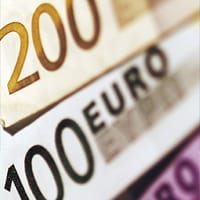US-listed multinationals are being investigated by the European Union over their tax practices

The European Union’s ruling that Apple must pay up to €13 billion ($14.5 billion) in back taxes may be the largest such case to date, but there are plenty of other multinationals being investigated over their tax practices on both sides of the Atlantic.
Global technology companies, big pharma and retailing franchises like McDonald’s have all made use of low-tax jurisdictions such as Ireland and Luxembourg, coupled with sweetheart deals and aggressive tax structures—including those with dime-store novel nicknames like the “Double Irish” or the “Dutch Sandwich”—to pay as little tax as possible.
The sums involved are gargantuan. Moody’s Investor Service has estimated that mainly US-listed multinationals are holding $1.2 trillion in cash overseas to avoid paying taxes at home.
Facebook, whose European headquarters and data center are situated outside Dublin, has for years been channeling close to half of its global revenues through Ireland—and then further reducing its tax liabilities by paying hefty licensing fees to other subsidiaries. The US Internal Revenue Service is demanding documentation of how Facebook transferred assets to Ireland, arguing that some of these were undervalued by “billions of dollars.”
Then there is Google, which has a network of companies registered in Ireland, the Netherlands and Bermuda that help minimize its tax bill. Again, income from major overseas markets is booked through Ireland and further reduced by fees paid internally between different subsidiaries.
Similarly, investigations are ongoing into tax agreements made in 2003 between Amazon and Luxembourg, home to its European headquarters, whereby revenues from online sales across Europe were booked by the Luxembourg subsidiary, whose taxable profits were then massively reduced by its paying heavy royalties to yet another subsidiary. A final decision on this case is pending.
McDonald’s has benefited from favorable tax rulings accepted by Luxembourg that meant it paid no tax on royalties from its European franchises. In the EU’s view, this may amount to “illegal state aid.” Starbucks’ tax arrangement was found to be illegal last October and is now before the court of appeal.
But it is not just US companies that are being pursued. Fiat’s tax deal with Luxembourg is also under appeal, while Belgium-based Anheuser-Busch InBev’s tax treatment by the Grand Duchy is also under investigation.
So who’s next? Anyone funneling earnings through Ireland or Luxembourg may well become a target.



